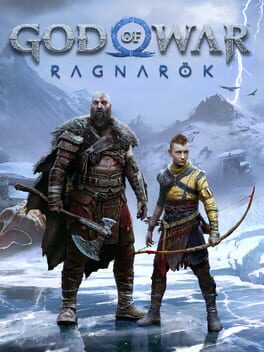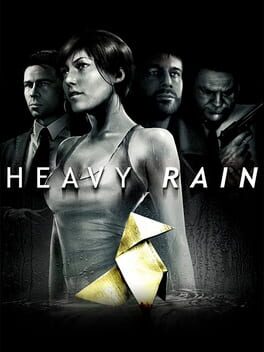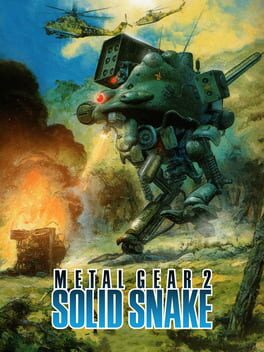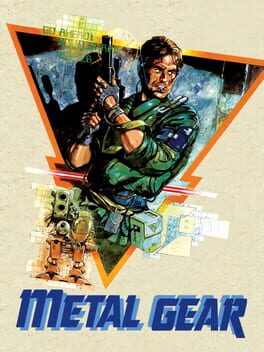Victormdesa
This review contains spoilers
This game was very celebrated when first released in 2018 for a good reason. It was the first game in long time that actually took the idea of creating an interactive Spider-man experience seriously, crafting a work of solid and engaging gameplay, a vivid and well populated open world and, most importantly, creating faithful interpretations of the classic comic book characters and a story that was able to adapt decades of comics and every other media the character's been in into a cohesive tale that mostly captured the essence of what makes Spider-man such a special and enduring pop culture icon.
That being said, Insomniac did such a great job and people were so hungry for a good Spider-man game after years of mediocre to okay titles that were mostly just counting on automatic success based solely on the ip's popularity that I feel this game's flaws tend to be understated at the same time its sequels tend to be overstated.
Replaying it again, after having finished Marvel's Spider-Man 2 (2023), my conclusion is that all three titles released in this series so far are about the same level of quality, with some elements being slightly better in each game just as some are slightly worse. In the end, they're all extremelly fun, breezy, feel good experiences that are able to keep you engaged and entertained from start to finish while telling optimistic and heartwarming stories that, in one way or another, are able to get to the core of what makes a good Spider-Man tale. This one is the blueprint for that and, abeit being flawed in some ways (like the two that came after it), is a game I'll keep coming back to time and again just because is so purely enjoyable and fun.
That being said, Insomniac did such a great job and people were so hungry for a good Spider-man game after years of mediocre to okay titles that were mostly just counting on automatic success based solely on the ip's popularity that I feel this game's flaws tend to be understated at the same time its sequels tend to be overstated.
Replaying it again, after having finished Marvel's Spider-Man 2 (2023), my conclusion is that all three titles released in this series so far are about the same level of quality, with some elements being slightly better in each game just as some are slightly worse. In the end, they're all extremelly fun, breezy, feel good experiences that are able to keep you engaged and entertained from start to finish while telling optimistic and heartwarming stories that, in one way or another, are able to get to the core of what makes a good Spider-Man tale. This one is the blueprint for that and, abeit being flawed in some ways (like the two that came after it), is a game I'll keep coming back to time and again just because is so purely enjoyable and fun.
I have so much to say about this game, but for now, I'll just say that, while my recent playthrough of MGS 4 made me like it a little bit less, replaying The Phantom Pain for the first time since it came out, far removed from all the hype and my own expectations for what I thought the game would be, made me enjoy it more and appreciate some of the elements that maybe I overlooked before, especially while contrasting it with the rest of the series and Kojima's games in general. It obviously has flaws, some really apparent, but I feel it also manages to convey its themes and messages through its story and mechanics in a very efficient way.
2022
The best way I can think of to compare God of War: Ragnarök to its predecessor, God of War (2018), is by contrasting them with two other games in the franchise: God of War II (2007) and the OG, God of War (2005). Back when God of War II was released in 2007, the consensus was something like "It's very similar to its predecessor, but improves upon it in every conceivable way". I remember feeling the same way when I first played it, although, in retrospect, I feel the narrative in God of War II is far less conclusive and, as a consequence, satisfactory than that of the first one, suffering from some serious "middle chapter syndrome" and leaving a sense of incompleteness as a last impression.
When the first trailer for Ragnarök was released, I remember feeling a little aprehensive, thinking the game looked excessively similar to 2018 and that the trailer revealed too much of the plot. Thankfully, I was wrong on both accounts: God of War: Ragnarök, much like God of War II, utilizes the same mechanical framework as God of War 2018 as a foundation, but expands upon and refines every single aspect of it. Not only that, it also masterfully continues the narrative from its predecessor in a way that is both subversive to what the player is led to expect from the ending of God of War 2018, but also extremelly satisfying in a way that makes the story from the previous game feel incomplete without it.
In that sense, Ragnarök succeeds even further than God of War II did back in 2007, serving not only as a spectacular example of what a great sequel is supposed to do, but also becoming the best game in this seventeen year old franchise in the process.
When the first trailer for Ragnarök was released, I remember feeling a little aprehensive, thinking the game looked excessively similar to 2018 and that the trailer revealed too much of the plot. Thankfully, I was wrong on both accounts: God of War: Ragnarök, much like God of War II, utilizes the same mechanical framework as God of War 2018 as a foundation, but expands upon and refines every single aspect of it. Not only that, it also masterfully continues the narrative from its predecessor in a way that is both subversive to what the player is led to expect from the ending of God of War 2018, but also extremelly satisfying in a way that makes the story from the previous game feel incomplete without it.
In that sense, Ragnarök succeeds even further than God of War II did back in 2007, serving not only as a spectacular example of what a great sequel is supposed to do, but also becoming the best game in this seventeen year old franchise in the process.
2019
If Resident Evil 7 showed promise in Capcom's new direction for the franchise, this game all but confirmed that 7 wasn't just a fluke. While the former felt different enough from what had come before in the main series due to the new camera perspective and lack of direct connection to the overarching narrative, 2 Remake feels like a modernization of the classic Resident Evil formula, taking the best elements from everything that came before and blending them masterfully.
The return to the original game's setting, environments and story is executed in a way that makes it feel familiar enough while adding freshness with the remixed locations, puzzles and, most importantly, vastly improved visuals and mechanics. The over the shoulder, third person camera that marked the beginning of the action focused era of the franchise is implemented surprisinlgy well in a game much more focused on creating tension through atmosphere and survival than on sheer number of enemies.
Speaking of enemies, while 7 famously suffered from a disappointing lack of variety of them, 2 Remake thrives on making every type of enemy unique, forcing the player to create vastly different strategies for dealing with each of them and creating incredible moments of tension when you're faced with more than one type of enemy in a single area (a hallway in the police station that, at a certain point in the game, houses zombies, a licker and possibly Mr. X at the same time comes to mind as a highlight on that front).
Add to that elements brought from the fantastic remake of the original Resident Evil, like the defensive weapons and the map being updated when a room is clear of items, and you've got what I feel is the absolute best title in the modern RE era, feeling nostalgic enough for fans of the classic games while also being modern in its mechanics and presentation so as to welcome new players unfamiliar with the franchise or even fans of the more action focused titles.
The return to the original game's setting, environments and story is executed in a way that makes it feel familiar enough while adding freshness with the remixed locations, puzzles and, most importantly, vastly improved visuals and mechanics. The over the shoulder, third person camera that marked the beginning of the action focused era of the franchise is implemented surprisinlgy well in a game much more focused on creating tension through atmosphere and survival than on sheer number of enemies.
Speaking of enemies, while 7 famously suffered from a disappointing lack of variety of them, 2 Remake thrives on making every type of enemy unique, forcing the player to create vastly different strategies for dealing with each of them and creating incredible moments of tension when you're faced with more than one type of enemy in a single area (a hallway in the police station that, at a certain point in the game, houses zombies, a licker and possibly Mr. X at the same time comes to mind as a highlight on that front).
Add to that elements brought from the fantastic remake of the original Resident Evil, like the defensive weapons and the map being updated when a room is clear of items, and you've got what I feel is the absolute best title in the modern RE era, feeling nostalgic enough for fans of the classic games while also being modern in its mechanics and presentation so as to welcome new players unfamiliar with the franchise or even fans of the more action focused titles.
2010
I honestly don't understand how this game received so much praise back when it was released. I imagine it was probably because the graphics (for the time) were really cutting edge and the whole idea of a game being a playable movie was kind of a novelty.
That being said, a story-driven video game is supposed to, you know, actually have a good story, which this one most definitelly does not. Leaving all the problematic depictions and characterizations aside, you're still left with an uninspired, cookie cutter "thriller" with the kind of twist that makes the whole thing completelly fall apart and make no sense at all. I'm absolutelly convinced that, had this same story been released as a film or limited series, it would have been demolished by critics on account of how terrible and nonsensical it is. I guess that just shows how low game critics' standards for what defined a good story in a game used to be (still are?).
That being said, a story-driven video game is supposed to, you know, actually have a good story, which this one most definitelly does not. Leaving all the problematic depictions and characterizations aside, you're still left with an uninspired, cookie cutter "thriller" with the kind of twist that makes the whole thing completelly fall apart and make no sense at all. I'm absolutelly convinced that, had this same story been released as a film or limited series, it would have been demolished by critics on account of how terrible and nonsensical it is. I guess that just shows how low game critics' standards for what defined a good story in a game used to be (still are?).
Metal Gear 2 is an improvement over its predecessor in every single aspect. The gameplay is more refined, offering additional movement that allows for more efficient sneaking, the graphics (for the time) are richer and more detailed and the music is more memorable. Most importantly, this game was the beginning of the idea of narrative and story as one of the defining traits of the Metal Gear series, and, to this day, it definitely doesn't disappoint on that front.
1987
The game that rekindled my interest in this franchise after years of being completely put off by what Capcom was offering. With that being said, my only concern going into this game was that it was going to be too much of a departure from the classic RE formula. After playing it, I'm happy to say that RE VII is a perfect modernization of the basic concept that made the original games so damn satisfying to play.
The first person perspective works incredibly well and makes the great atmosphere and intimate scope of the game so much more unnerving. The exploration and resource management elements, so essential to a survival horror game, are greatly executed. The points that prevent this from being a perfect game to me are an uneven pacing, with the first part being stronger than the final segments, and a lack of development in the characters and their relationships with each other. Even so, this game single-handedly restored my faith in the franchise and made me optimistic about its future for the first time in years.
The first person perspective works incredibly well and makes the great atmosphere and intimate scope of the game so much more unnerving. The exploration and resource management elements, so essential to a survival horror game, are greatly executed. The points that prevent this from being a perfect game to me are an uneven pacing, with the first part being stronger than the final segments, and a lack of development in the characters and their relationships with each other. Even so, this game single-handedly restored my faith in the franchise and made me optimistic about its future for the first time in years.








